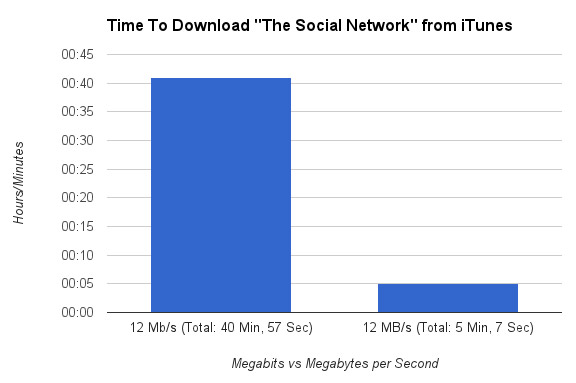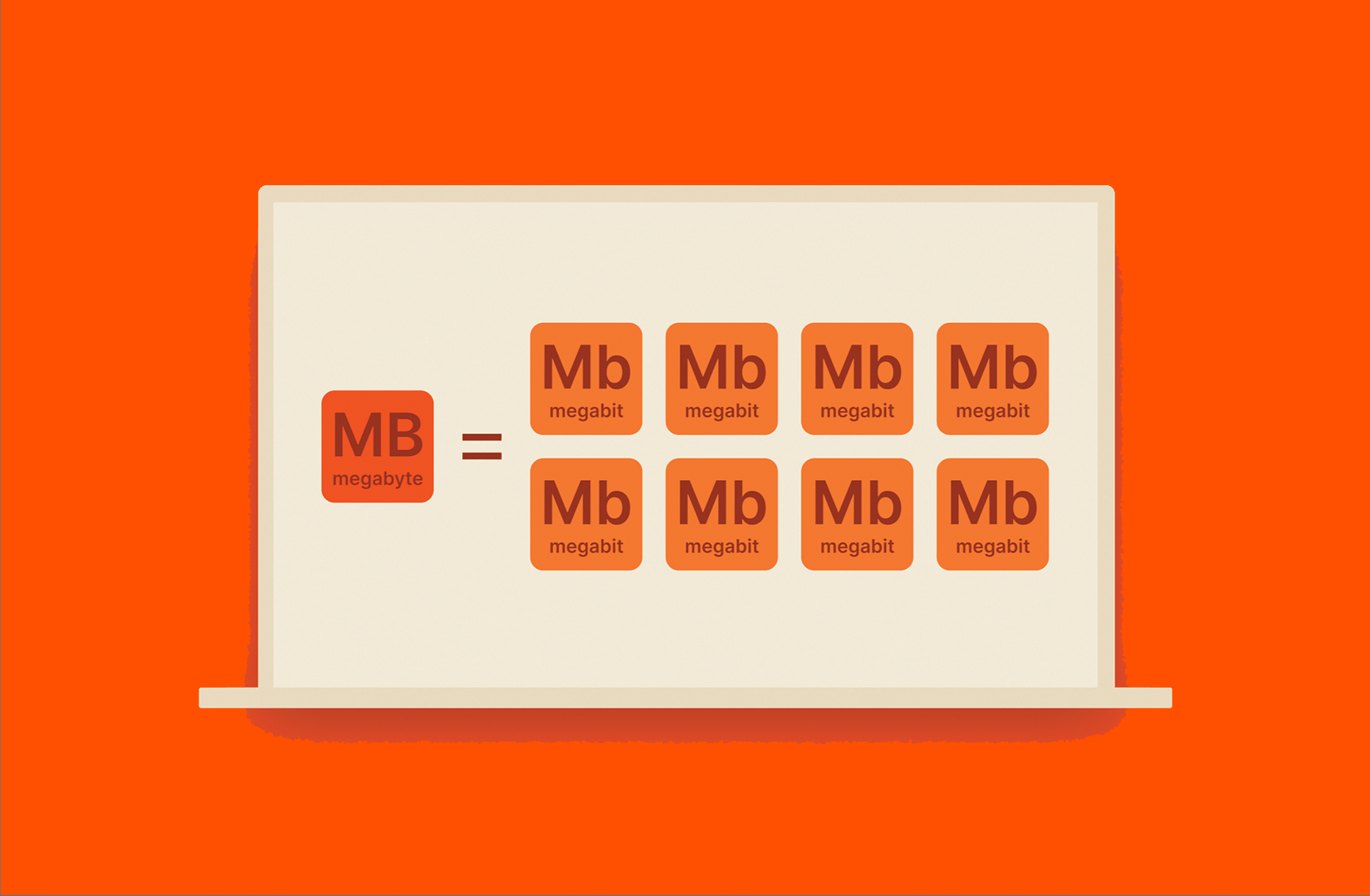Comparing Internet Suppliers: Who Offers the very best Megabits Per Second?
Comparing Internet Suppliers: Who Offers the very best Megabits Per Second?
Blog Article
Exactly How Megabits Per Second Effect Your Online Activities
The principle of megabits per second (Mbps) plays a pivotal duty in forming our on the internet experiences. As electronic tasks proliferate, comprehending the effects of Mbps on streaming, video gaming, and video clip conferencing comes to be progressively vital. Higher Mbps can enhance efficiency and decrease disruptions, while insufficient rates may promote frustration and inadequacy. Assessing your household's details demands in regard to these rates is important, particularly as numerous tools contend for data transfer. The nuances of how Mbps affects different online tasks require additional expedition, particularly as our reliance on electronic connectivity continues to advance.
Comprehending Megabits Per Second
When taking into consideration internet speed, it's essential to understand the idea of megabits per second (Mbps), which serves as a common measurement for data transfer prices. This metric quantifies exactly how much information can be sent over a web link in one second, providing a clear understanding of performance abilities - Megabits Per Second. For context, one megabit is equal to one million bits, and Mbps is typically utilized to express bandwidth for different online tasks
A greater Mbps suggests a faster internet connection, enabling users to execute tasks such as downloading and install data, browsing web sites, and taking part in on-line gaming more efficiently. For circumstances, regular browsing calls for around 1-5 Mbps, while streaming high-definition video may require 5-25 Mbps. Recognizing these needs is vital for figuring out the suitable web speed required for certain tasks.
Furthermore, the variety of tools attached to a network can affect total performance. Numerous users streaming, video gaming, or downloading simultaneously can stress available transmission capacity, leading to slower speeds - Megabits Per Second. Assessing individual online routines and needs is vital in choosing a net plan that lines up with one's requirements, making sure a seamless digital experience
Streaming and Buffering Issues
Streaming high-def web content has ended up being a staple of contemporary on the internet home entertainment, yet it is usually accompanied by irritating buffering problems. These interruptions can substantially diminish the viewing experience, bring about dissatisfaction and potential loss of audience engagement. Buffering occurs when the data sent from the streaming solution is not obtained quickly enough to preserve a smooth playback, frequently because of insufficient web rate measured in megabits per second (Mbps)

Additionally, real-time streaming can be influenced by network blockage, which occurs when numerous gadgets share the exact same data transfer. Optimizing connection rate and making certain appropriate Mbps is essential for a seamless streaming experience. As streaming services proceed to advance, recognizing the influence of Mbps on buffering concerns remains critical for customers looking for nonstop home entertainment.
Online Gaming Performance
The effect of web speed on on-line tasks extends beyond streaming, significantly influencing online gaming efficiency. In affordable pc gaming, low latency and high bandwidth are important for a smooth experience. A fast connection reduces lag, allowing players to respond quickly to in-game occasions, which can be the distinction in between victory and defeat.
Data transfer, determined in megabits per second (Mbps), plays an essential role in supporting several devices and video gaming systems at the same time. Not enough transmission capacity can bring about dropped connections or reduced game high quality, negatively affecting gameplay. On-line multiplayer video games need substantial data transfer, especially throughout peak pc gaming hours when countless gamers are online.
Hectic first-person shooters demand greater speeds to maintain responsiveness, while turn-based strategy video games might work fairly well on lower rates. As online pc gaming proceeds to progress, with increasing graphical fidelity and even more intricate multiplayer settings, the need for greater Mbps will just magnify.
Video Conferencing Top Quality
In today's electronic landscape, video clip conferencing quality is greatly influenced by web rate, especially in regards to data transfer and latency. High-quality video clip calls call for adequate bandwidth to transfer sound and video information effortlessly. Typically, a minimum of 1.5 Mbps upload and download rates is recommended for basic definition video clip, while high-definition video clip conferencing typically requires at the official source very least 3 Mbps.
Latency, or the delay in between sending out and receiving data, likewise plays a vital function in the customer experience. Reduced latency ensures that discussions flow normally without unpleasant stops or disturbances. Ideally, latency should be listed below 150 nanoseconds for reliable communication. Greater latency can cause resemble, lag, and disjointed interactions, which can impede cooperation and involvement throughout conferences.
In addition, several participants in a video conference can stress available transmission capacity, necessitating even greater speeds. Network congestion, often triggered by synchronised tasks like streaming or downloading, can additionally weaken video clip quality. Hence, for organizations depending on video clip conferencing for remote cooperation, comprehending the partnership in between megabits per second and total interaction top quality is vital for preserving performance and improving digital interactions.
Choosing the Right Internet Plan
Selecting a suitable net plan is important for ensuring optimal performance in different online activities, particularly in settings that require high data transfer, such as video conferencing and online video gaming. Megabits Per Second. When considering an internet strategy, it is necessary to assess both the speed and information allocation to match your specific usage requirements
For households with several users involving in synchronised tasks, a plan providing greater megabits per second additional info (Mbps) is suggested. Generally, a minimum of 25 Mbps appropriates for standard streaming and browsing, while plans exceeding 100 Mbps are more suitable for more extensive tasks. Furthermore, consider the nature of your online activities; video conferencing needs at the very least 1.5 Mbps post rate, while online video gaming may need a reduced latency yet regular connection.
Limitless information plans can avoid strangling and interruptions, specifically if heavy usage is prepared for. By attentively picking a net plan customized to your needs, you can enhance your on-line experience, making certain smooth, continuous access to your favored activities.
Final Thought
In final thought, the value of megabits per second (Mbps) in shaping on the internet tasks can not be overstated. A detailed understanding of individual or house Mbps requirements is vital for picking a proper web plan that appropriately supports diverse online tasks and customer demands.

Commonly, a minimum of 25 Mbps is ideal for common streaming and surfing, while plans going click beyond 100 Mbps are better for even more extensive jobs. Furthermore, take into consideration the nature of your online tasks; video clip conferencing needs at least 1.5 Mbps publish rate, while on-line pc gaming may require a lower latency yet regular connection.
Report this page